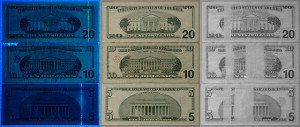A federal jury found a 40-year-old Windermere man guilty of 11 counts of wire fraud and 4 counts of filing a false tax-related document.
He faces a maximum penalty of 20 years in federal prison for each wire fraud count and up to 3 years’ imprisonment for each false document charge.
The man’s sentencing hearing is scheduled for November 19, 2015. He was indicted on April 9, 2015.
According to the evidence presented at trial, from 2006 through 2012, the accused was employed as the personal assistant to an NBA basketball player, who has since retired from professional basketball. During calendar years 2008 through 2011, the man apparently stole approximately $2,188,170 from the ball player by making unauthorized online banking money transfers from one of his bank accounts into three different bank accounts that the man controlled. The man spent these funds on his own personal expenses, including mortgage payments for his home in Windermere, and the purchase of a Ferrari and a Range Rover.
The man also filed false joint income tax returns with the Internal Revenue Service for each of these years. In these tax returns, he and his wife never reported more than $60,000 in gross income, when in fact their joint income was significantly greater due to the money the man stole from the former basketball player.
This case was investigated by the Internal Revenue Service – Criminal Investigation, with assistance from the United States Secret Service. It is being prosecuted by Assistant United States Attorney Andrew C. Searle.
Wire fraud can range in criminal acts, including fraudulent schemes for phishing emails, sending electronic checks or money to banks, or communications over the Internet or telephone.
The essential elements of wire fraud include the following:
- The defendant intentionally devised or participated in a scheme to defraud another out of money
- The defendant did so with the intent to defraud
- It was foreseeable that interstate wire communication would be used
- That interstate wire communication was used
The term “interstate wire communications” is broad, and refers to any type of transmission by wire, radio, or television communication, including, but not limited to, writings, signs, pictures, faxes, or sounds used in interstate or foreign commerce.
 Florida Criminal Attorney Blog
Florida Criminal Attorney Blog










